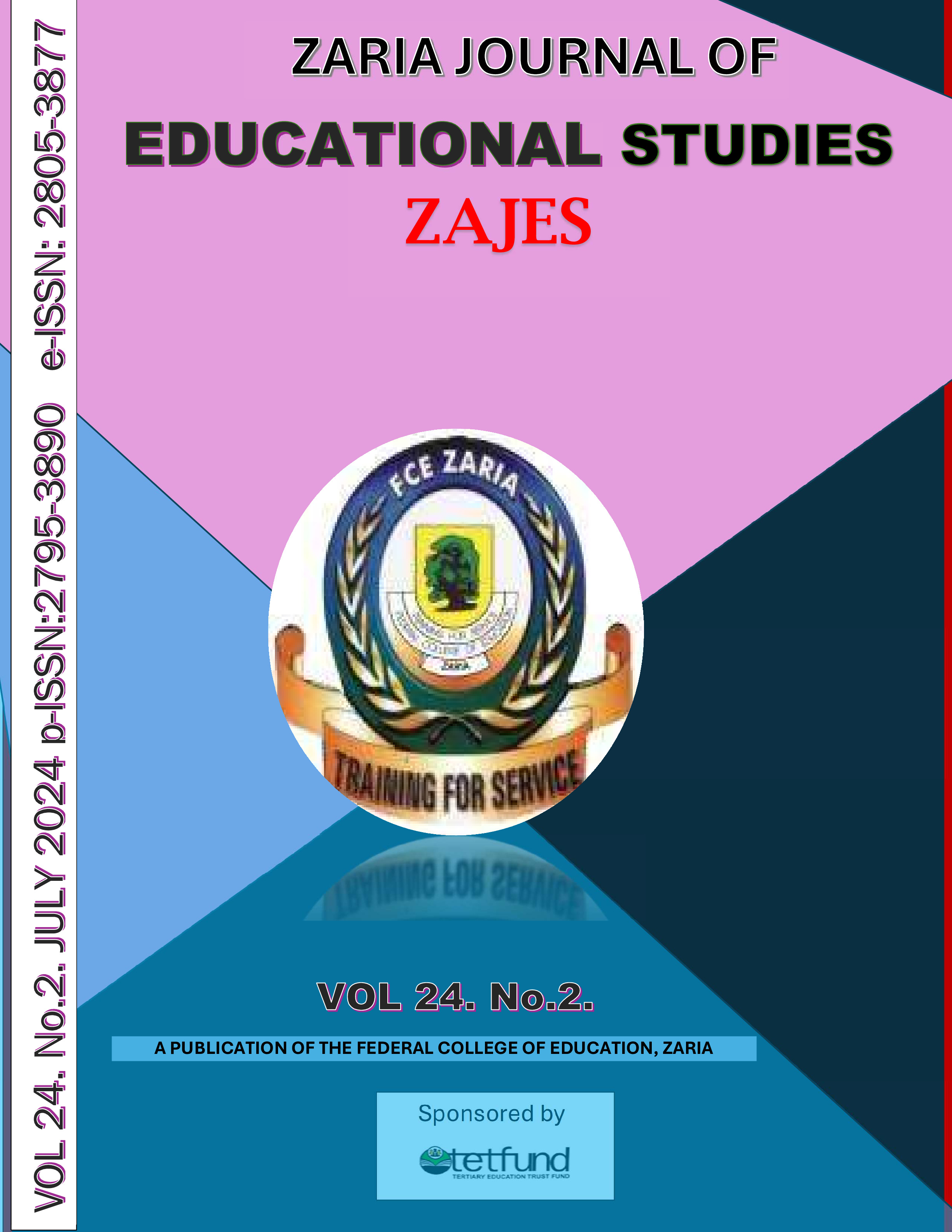Relationship Between Learner's Self-Regulation and Student's Intrinsic Motivation on Academic Achievement of Senior Secondary School Students in Kaduna South Local Government
Keywords:
Learner's Self-Regulation, Student's Intrinsic Motivation, Academic Achievement, Senior Secondary School Students, Kaduna South Local GovernmentAbstract
This study examined the relationships between self-regulation, intrinsic motivation, and academic achievement among senior secondary school students in Kaduna South Local Government, Nigeria. A purposive sample of 250 students participated in the study. Measures of self-regulation and intrinsic motivation were obtained through self-report surveys, while academic achievement was assessed using students' cumulative scores. Pearson correlation analysis was employed to analyse the data. The findings revealed a significant positive relationship between self-regulation and academic achievement (r = 0.30, p = 0.018), indicating that students with higher levels of self-regulation tended to achieve better academic outcomes. In contrast, intrinsic motivation did not show a significant relationship with academic achievement (r = 0.15, p = 0.145). Based on these findings, it is recommended that educational interventions focus on integrating self-regulation skill development into the curriculum. Strategies such as explicit instruction in goal setting, time management, and metacognitive strategies could empower students to take more control over their learning processes, thereby enhancing their academic performance. Additionally, efforts should continue to foster intrinsic motivation through creating engaging learning environments that support autonomy, competence, and relatedness among students.

